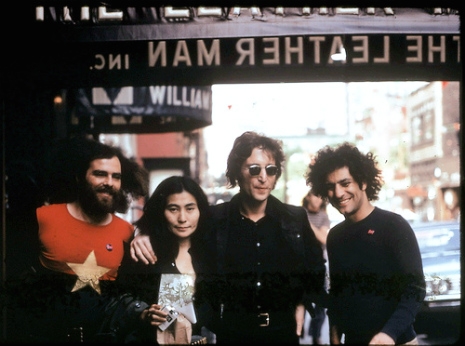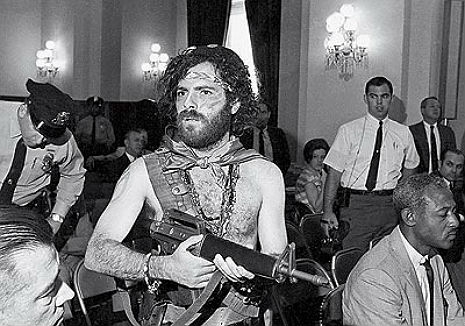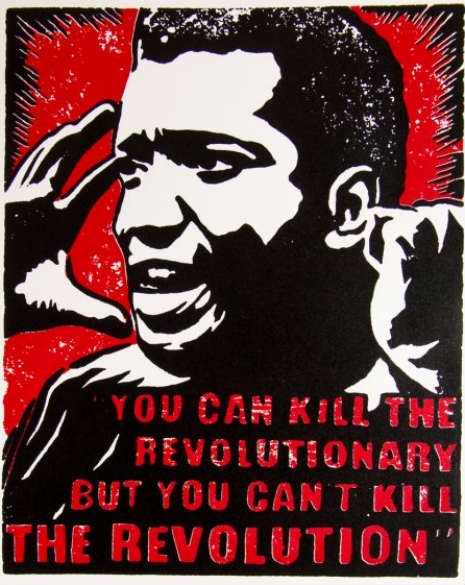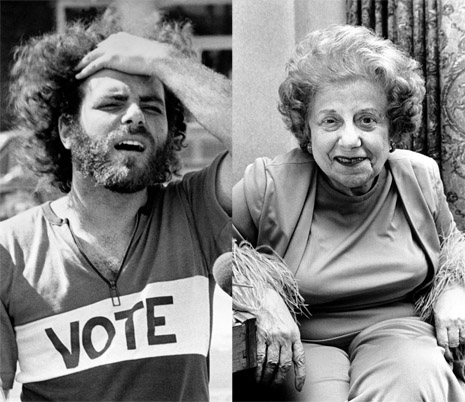
A devotion to politics as theatrical spectacle and vice versa made Jerry Rubin, along with Abbie Hoffman, one of the most visible and notorious activists in the counterculture of the late ‘60s and early ‘70s. A founder, again along with Hoffman and others, of the Youth International Party (a/k/a the Yippies), Rubin was known for media-engaging stunts like showing up for his HUAC testimony variously dressed as a Viet Cong guerrilla and as Santa Claus. His utterly gonzo approach to politics flipped in the mid ‘70s, when in a surprising ideological reversal, he became a capitalist businessman who ended the decade (and entered the Reagan years) as a yuppie millionaire, advocating for EST, “networking parties,” and diet fads instead of revolution. Credit where it’s due, though—among his capital ventures was an effort to marshall investment in solar panels.
Hindsight of that transformation/sellout might be a part of what makes the clip below feel kinda righteous. Though the Chicago Seven trial made Rubin a well-known public face of The Revolution™, there were times when he wasn’t one of its most articulate advocates. He appeared on Cleveland, OH television in 1970 (Rubin was Cincinnati born and raised, himself) to flog his screed DO IT! Scenarios of the Revolution, but he just came off like an inchoate stoner jackass. He had science on his side in his assertion that weed is less destructive than booze, but he was such a dumb dick about it, prolonging an unproductive back-and-forth on the matter, sounding more like a tedious sophomore ruining Thanksgiving than a nationally-known activist engaging with the public to bring awareness to his manifesto. He piled on tiresome levels of I’m-so-cool smarm to cover the deficiencies in his talking points until the fed-up interviewer—an improbably flame-haired 76-year-old lady named Dorothy—got sick of his bullshit and shut the interview down.
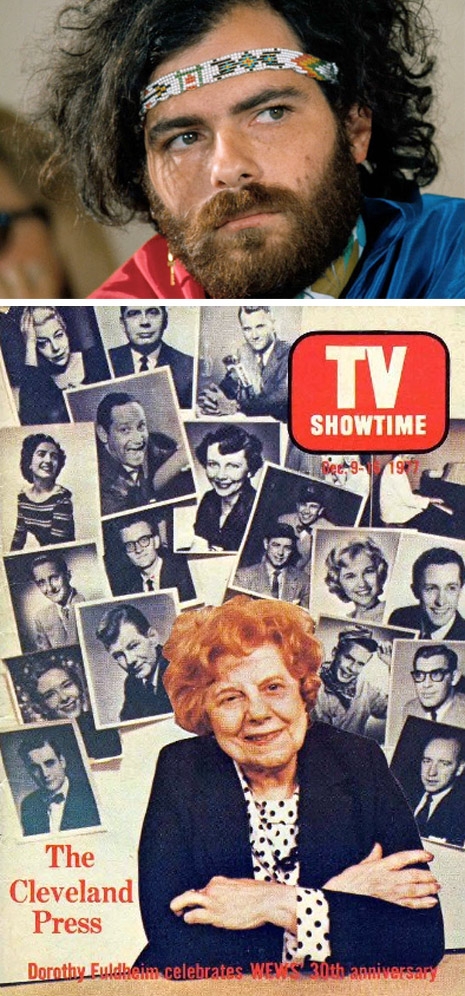
About that Dorothy: she wasn’t just any little old lady—she was a career ass-kicker. Dorothy Fuldheim was and remains a widely admired Cleveland legend, a broadcasting lifer and pioneer for women in newsrooms who’s acknowledged as the first female TV news anchor. Her utterly unbelievable highlight reel included one-on-one interviews with Adolf Hitler (Fuldheim was Jewish), Albert Einstein, Helen Keller, Winston Churchill, and Jimmy Hoffa, and she didn’t retire until age 91, when a stroke she suffered shortly after interviewing Ronald Reagan (make of that what you will) made it impossible for her to continue working. She died in 1989, and was recently the subject of a Drunk History segment that you should probably just go ahead and watch right now.
Fuldheim was unapologetically opinionated; she shut down her Rubin interview when his declaration of solidarity with the Black Panthers proved to be her last straw. But though she was very much an establishment figure, bristling at Rubin’s characterization of police as “pigs,” she was no conservative, and it’s tempting to wonder how her feelings about Cleveland’s finest may have changed had something like the Tamir Rice murder and the outcry in its aftermath happened in her lifetime. We actually don’t even have to wonder all that hard; within a month of the Rubin interview, she put her career at risk to TORPEDO then-Governor James Rhodes and the Ohio National Guard on the air in the wake of the Kent State shootings, forcefully decrying a system that killed its own children.
Continues after the jump…






